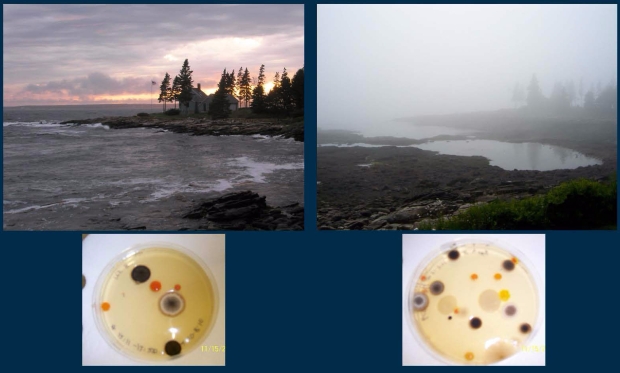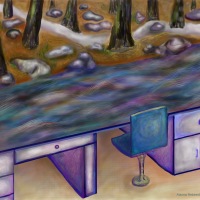Microbial Ecology of Fog

Coastal advective fogs play an as-yet underappreciated and under-researched role in materials exchange between aquatic and terrestrial systems. Because fog droplets are known to contain high concentrations in nutrients (N and P) required for microbial metabolism, microbial life may be making a living while suspended in a cloud droplet, and not just catching a ride. Our lab studies the microbial ecology of coastal advective fogs, with primary interest in the ecological structure fog can provide (albeit temporarily) in the atmosphere. This role is similar to clouds, but fog’s proximity to water and land surfaces results in more direct interaction with microbes ejected from local sources, including the ocean, plants, and humans.
Relevant Publications:
The biology of fog: results from coastal Maine and Namib Desert reveal common drivers of fog microbial composition. Science of the Total Environment, 2018.
“Coupling of fog and marine microbial content in the near-shore coastal environment”, Biogesciences, 2012.
“Environmental Controls on Coastal Coarse Aerosols: Implications for Microbial Content and Deposition in the Near-Shore Environment”, Environmental Science & Technology, 2011.
Relevant Research Activities:
“Marine sources influence fog bioaerosol composition in Namibia and Maine”, AGU Oral Presentation (accepted, 2017)
“Onshore Winds and Coastal Fog Enhance Bacterial Connections Between Water and Air In the Coastal Environment”, Invited AGU Oral Presentation 2013
Moore Foundation Coastal Fog Research Workshop (2013)



